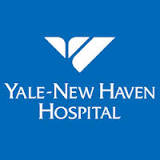Retracting the Esophagus During AF Ablation
| Status: | Not yet recruiting |
|---|---|
| Conditions: | Atrial Fibrillation, Cardiology |
| Therapuetic Areas: | Cardiology / Vascular Diseases |
| Healthy: | No |
| Age Range: | 18 - 80 |
| Updated: | 4/21/2016 |
| Start Date: | January 2016 |
| End Date: | January 2018 |
| Contact: | Medhat Abdelmessih, MD |
| Email: | medhat.abdelmessih@yale.edu |
| Phone: | (203) 737-1330 |
Esophageal Stylet as a Strategy to Minimize the Risk of Esophageal Injury During the Atrial Fibrillation Catheter Ablation Procedure.
This Study is designed to determine the outcome and effect of implementation of Esophageal
Stylet as a strategy to minimize the risk of esophageal injury during the atrial
fibrillation catheter ablation procedure.
Stylet as a strategy to minimize the risk of esophageal injury during the atrial
fibrillation catheter ablation procedure.
There is a clear potential to produce transmural esophageal injury during catheter ablation
for AF when employing a lesion set targeting the posterior left atrial wall and pulmonary
vein (PV) antra using contemporary large-tip or irrigated-tip catheter ablation systems when
endocardial target sites are in close proximity to the esophagus.
It is very likely that a movement by the Esophageal Stylet of only 2 to 3 centimeters from
the midline can safely protect the esophagus from thermal injury and will mimic the natural
migration of the esophagus itself.
The Stylet proposes to safely facilitate lateral esophageal movement in a manner consistent
with the esophagus's own natural migration in order to displace and maintain the esophagus's
position away from potential damage resulting from a cardiac ablation procedure in the left
atrium or coronary sinus.
The Esophageal Stylet is a thin rigid tube, which will be inserted inside a commonly used
nasogastric tube placed inside the esophagus during the ablation. We will use this stylet to
move the esophagus away from the site of the ablation about 1-2 centimeters. Other common
procedures, such as (Trans-esophageal Echocardiogram), move the esophagus twice this
distance with a low risk.
for AF when employing a lesion set targeting the posterior left atrial wall and pulmonary
vein (PV) antra using contemporary large-tip or irrigated-tip catheter ablation systems when
endocardial target sites are in close proximity to the esophagus.
It is very likely that a movement by the Esophageal Stylet of only 2 to 3 centimeters from
the midline can safely protect the esophagus from thermal injury and will mimic the natural
migration of the esophagus itself.
The Stylet proposes to safely facilitate lateral esophageal movement in a manner consistent
with the esophagus's own natural migration in order to displace and maintain the esophagus's
position away from potential damage resulting from a cardiac ablation procedure in the left
atrium or coronary sinus.
The Esophageal Stylet is a thin rigid tube, which will be inserted inside a commonly used
nasogastric tube placed inside the esophagus during the ablation. We will use this stylet to
move the esophagus away from the site of the ablation about 1-2 centimeters. Other common
procedures, such as (Trans-esophageal Echocardiogram), move the esophagus twice this
distance with a low risk.
Inclusion Criteria:
1. Age 18 or above for the Patient or legal representative to provide informed consent.
2. Documented paroxysmal or persistent Atrial Fibrillation by a Cardiologist and EKG
finding.
3. The patient will undergo Atrial Fibrillation catheter ablation as a treatment plan.
Exclusion Criteria:
1. Bleeding disorder.
2. Dysphagia to solid and liquid or any documented esophageal masses or cancer.
3. Esophageal varices, diverticulum, esophageal web, upper GI bleeding, or hiatal
hernia.
We found this trial at
1
site
20 York St, N20 York St,
New Haven, Connecticut 06520
New Haven, Connecticut 06520
(203) 688-4242

Principal Investigator: Mark Marieb, MD, FACC
Phone: 203-737-1330
Yale-New Haven Hospital Relying on the skill and expertise of more than 4,500 university and...
Click here to add this to my saved trials